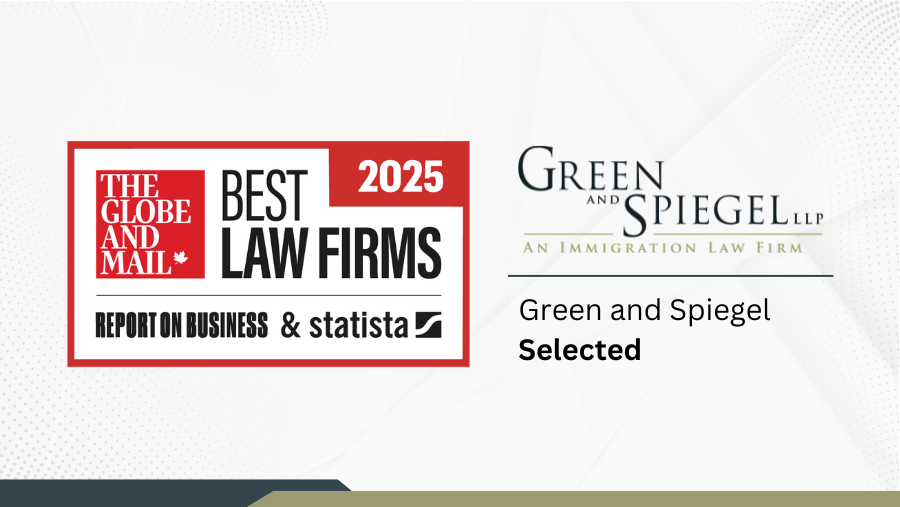
On January 16, 2024 the Honourable Marc Miller, Minister of Immigration released a Policy on Francophone Immigration. The objective of this policy is “to enhance the long-term vitality and prosperity of Francophone and Acadian minority communities and pave a path toward restoring and increasing their demographic weight within an immigration system that is fair, equitable and non-discriminatory.”[1]
In honour of Mois de la Francophonie (Francophonie Month), I will provide a summary of some the Canadian immigration programs and streams that may be of particular interest to French-speaking individuals both for Temporary Residence and Permanent Residence in Canada (provinces outside of Quebec). While I blogged on this topic in 2019, there have been material changes to the options available to French-speaking candidates who are interested in working or immigrating to Canadian provinces outside of Quebec. The Government of Canada has demonstrated that increasing minority francophone population through immigration is a key priority based on the changes that have been seen during the second half of 2023 and so far, in 2024.
Temporary Residence – Work Permit Options for French-speaking Applicants
1. International Experience Canada (IEC)
Although not a program directly targeting French-speaking candidates, the IEC program allows young people (aged 18-30 or 18-35, depending on their country of nationality) from participating countries to gain work experience in Canada. Participating countries include Belgium, France, Luxembourg, and Switzerland, opening the door to young francophones to explore Canada. Depending on the candidate’s country of nationality, there are different steams available including an open work permit stream (Working Holiday), an employer-specific work permit stream (Young Professionals), and a Co-op stream.
2. Francophone Mobility Work Permit
This work permit stream under the International Mobility Program is available to French-speaking foreign workers who have job offers with Canadian employers outside of Quebec. While applicants previously had to have a high-skilled job offer, effective June 2023, the job offer may be at any TEER level (other than TEER 4 and 5 primary agricultural occupations).[2] The level of French language proficiency required depends on the skill-level of the position. Under this category, employers can support a Labour Market Impact Assessment (LMIA) – exempt work permit category where the labour market does not need to be tested because of significant benefits to Canada.
Permanent Residence – Options for French-speaking Candidates
1. Express Entry
Express Entry is an application management system used to screen potential candidates for permanent residence. If eligible, candidates enter a pool where they may receive an invitation to apply for Permanent Residence. They must meet the criteria of one of three program streams to be able to create a profile: the Canadian Experience Class (based on high-skilled Canadian work experience and strong English/French language proficiency), the Federal Skilled Worker Program (the candidate must meet a 67-point cut-off based on such factors as: age, language proficiency, work experience, and education) or the Federal Skilled Trades Program (a number of factors need to be met including a job offer in a trade or provincial certification). Once in the pool, the candidate is given a score. The Government of Canada periodically conducts draws to invite top-ranking candidates to apply for Permanent Residence.
Historically, draws were largely based on the highest scores. Minimum language scores in English or French are part of the criteria to be able to create a profile. Additional points, are, however, awarded to candidates who are proficient in both official languages and in particular, who have strong French-language skills. On May 31, 2023, Category-Specific Draws were announced.[3] While 5 categories are based on groupings of occupations such as Health Care workers, the 6th category is based on French-language proficiency. Candidates who have achieved a base score of 7 in the Niveaux de competence linguistique canadien may be considered for French-speaking draws.
The Government of Canada has used this category as a tool to invite large numbers of French-speakers to settle in minority Francophone communities outside of Quebec. Since its introduction, there have been 8 draws for French-speaking candidates.[4] The cut-off scores for these draws have ranged from 472 at its highest on September 23, 2023, to 336 at its lowest on February 29, 2024.[5] The scores have been lower than what has been seen in recent General Draw cut-offs and many of the other categories. The last three General Draws saw cut-offs of 524 (March 25, 2024); 525 (March 12, 2024); and 534 (February 28, 2024).[6] This dramatic difference in points appears to be connected to significant difference in the number of invitations issued in the draws. For the last three General Draws, there were 1,980; 2,850; and 1,470 invitations issued in each draw.[7] Comparatively, there were 2,500; 7,000; and 1,000 invitations issued in the last 3 draws targeting French-speaking candidates.[8]
The introduction of this new French-speaking category has been a game changer for Francophones who are interested in immigrating to a Canadian province outside of Quebec. The number of candidates who have been invited under this category, 18,200 to date,[9] is impressive and demonstrates that this is indeed an important priority.
2. Ontario Immigrant Nominee Program
In my last blog on this topic, I discussed the OINP French Speaking Skilled Worker Stream. This continues to be an option for candidates who are in the Express Entry pool. The Province of Ontario has the ability to screen candidates who are interested in setting there. If issued a Notification of Interest by the Province to pursue this program, the candidate may apply and if successful, will receive a Nomination Certificate which will add an additional 600 points to their Express Entry profile.
The criteria include holding a Bachelor’s degree (at a minimum), having the required work experience, and possessing strong French and English language proficiency. The province now conducts two types of draws: General Draws (all qualifying occupations) and Targeted Draws (limited to certain occupations). The Province will also pick candidates within a range of scores in the Express Entry system. There has been one French-speaking Notification of Interest in 2024 so far.[10] On January 18, 2024 the Province held a General Draw and issued 984 Notifications of Interest to individuals with scores between 317-469.[11] If selected, this can help candidates intend on residing in Ontario to increase their Express Entry score allowing them to be invited for permanent residence more easily.
3. Francophone Community Immigration Pilot – Fall 2024
Earlier this month, the Minister announced that there will be a new pilot program to help boost francophone immigration in smaller communities.[12] More details are to come on this initiative that is expected to begin in the fall.[13]
It is an exciting time for French-speaking candidates and minority Francophone communities outside of Quebec. This is truly the time for French-speaking individuals who are interested in Canada to consider starting the process toward making Canada their new home. To further discuss your Canadian immigration options as a French-speaking individual, please contact us. Bon mois de la Francophonie!
[1] The Honourable Marc Miller, Minister of Immigration, Refugees and Citizenship. Government of Canada. (2024, 01 16). Message from the Minister. Policy on Francophone Immigration. Retrieved from IRCC: https://www.canada.ca/en/immigration-refugees-citizenship/corporate/publications-manuals/francophone-immigration-strategy-2024.html
[2] Government of Canada, Francophone Mobility work permit: How to apply. Retrieved from IRCC: https://www.canada.ca/en/immigration-refugees-citizenship/services/work-canada/permit/francophone-mobility.html
[3] Government of Canada, (2023, 05 31). Canada launches new process to welcome skilled newcomers with work experience in priority jobs as permanent residents. Retrieved from IRCC: https://www.canada.ca/en/immigration-refugees-citizenship/news/2023/05/canada-launches-new-process-to-welcome-skilled-newcomers-with-work-experience-in-priority-jobs-as-permanent-residents.html
[4] Government of Canada, (2023, 11 15). Ministerial instructions respecting invitations to apply for permanent residence under the Express Entry system. Retrieved from IRCC: https://www.canada.ca/en/immigration-refugees-citizenship/corporate/mandate/policies-operational-instructions-agreements/ministerial-instructions/express-entry-rounds.html#wb-auto-4
[5] Ibid.
[6] Ibid.
[7] Ibid.
[8] Ibid.
[9] Ibid.
[10] Government of Ontario, (2024, 03 21). OINP Express Entry Notifications of Interest. Retrieved from OINP: https://www.ontario.ca/page/oinp-express-entry-notifications-interest#section-1
[11] Ibid.
[12] Government of Canada, (2024, 03 06). Francophone minority communities, will create a permanent program. Retrieved from IRCC: https://www.canada.ca/en/immigration-refugees-citizenship/news/2024/03/canada-announces-new-immigration-pilots-to-support-rural-and-francophone-minority-communities-will-create-a-permanent-program.html
[13] Ibid.





